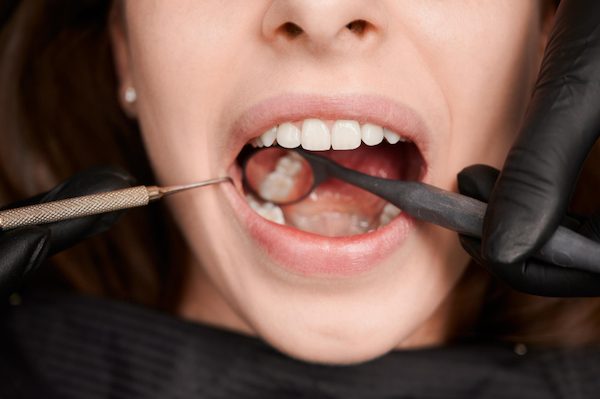Dental Fillings

Dental Fillings Seven Hills
Dental fillings are a standard dental treatment to restore teeth damaged by decay.
Types of Dental Fillings
Dental fillings come in various forms, each with benefits and drawbacks.
Amalgam Fillings
- It is made from a mixture of metals, including silver, mercury, tin, and copper.
- Durable, long-lasting, and cost-effective.
- They are noticeable due to their silver colour and the potential for minor expansion over time.
Composite Fillings
- Made from a combination of plastic and tiny glass particles.
- Tooth-coloured provides a natural appearance and bonds directly to the tooth structure.
- Less durable than amalgam, it can chip or wear over time and is typically more expensive.
Ceramic Fillings
- Made from porcelain.
- Highly aesthetic, tooth-coloured, and resistant to staining.
- More brittle than composite, it can be more expensive.
Gold Fillings
- Made from a gold alloy.
- Very durable and long-lasting, biocompatible.
- They are costly and noticeable due to their gold colour.
Glass Ionomer Fillings
- Made with a particular kind of glass and acrylic.
- Fluoride can help protect teeth from future deterioration.
- It is less durable and is mainly used for fillings below the gum line or in young children.
Why do you need a filling?
Dental fillings repair worn-down, chipped, decayed, or discoloured teeth. Teeth worn down, chipped, decayed, or broken can be prone to further damage, and we always recommend having them checked and fixed to prevent further problems, such as extractions and root canal treatment.
1. Worn teeth
Usually caused by clenching and grinding on the teeth or brushing too hard on the tooth surface
2. Broken or chipped teeth
often result from eating hard foods, accidents from falls, or sports injuries. They can also arise from long-term wear and tear as the tooth structure weakens.
3. Decayed teeth (cavities)
occur when you consume too much sugar or don’t clean your teeth regularly or carefully enough. We recommend taking X-rays on your first check-up visit and updating them every two years to ensure the tooth structure is sound and healthy.
4. Discoloured teeth
This may occur for various reasons, but if you are unhappy with the appearance or colour of your teeth, we can place fillings on them or offer other options, such as veneers, crowns, and teeth whitening.

How do you know if you should have a filling?
Sometimes, it can be pronounced – you see and feel a hole in your tooth.
Sometimes, it might be a filling or not – you may feel sensitivity to hot/cold/sweet foods or experience food getting stuck in a particular spot.
Sometimes, it is not apparent at all – you don’t feel or notice anything, but in fact, there is a massive cavity in your tooth.
Dental Filling Procedure
The following stages are usually involved in getting a dental filling:
- Examination and Diagnosis: To find cavities and assess the level of decay, your dentist will inspect your teeth and frequently use X-rays.
- Anaesthesia: To guarantee a pain-free procedure, local anaesthetic is administered to numb the surrounding tissue of the injured tooth.
- Removal of Decay: The tooth’s decaying area will be extracted by the dentist using a drill or laser.
- Preparation: The cavity is cleaned to remove bacteria and debris. If the decay is near the nerve, a liner or base may be placed to protect it.
- Filling Placement: The chosen filling material is applied in layers, with each layer being shaped and hardened (for composite fillings, this is done using a special light).
- Shaping and Polishing: After the filling is inserted, your Seven Hills dentist will polish and shape it to match the tooth’s natural form and provide a comfortable bite.
Aftercare for Dental Fillings

To keep your dental fillings intact and your oral health overall, you must follow these instructions:
- Oral Hygiene: To avoid plaque accumulation, floss once a day and brush twice a day.
- Regular Check-ups: See your Seven Hills dentist regularly for examinations and cleanings by professionals.
- Avoid Hard Foods: Refrain from chewing hard foods or objects that can crack or damage the filling.
- Monitor Sensitivity: Some sensitivity to hot or cold is normal after a filling, but if it persists, consult your dentist.
Dental Fillings in Seven Hills
At My Local Dentists Seven Hills, we will thoroughly examine all your teeth, which usually involves taking x-rays. We will then let you know precisely what is happening in your teeth and if there are any cavities. From there, we can talk you through all of the options and take into account your personal preferences and situations.
In some circumstances, if the tooth requires a huge filling, we recommend a crown and even root canal treatment.
Call your Seven Hills dentist at (02) 8605 1696 or schedule an appointment online.
We are located at Shop 55, (Ground Floor) Seven Hills Plaza, 224 Prospect Hwy, in Seven Hills.
How long do dental fillings last?
Dental fillings can last a lifetime, depending on the material selected and your level of oral hygiene. Amalgam fillings can last 10-15 years, while composite fillings may last 5-7 years.
Do dental fillings hurt?
The procedure is usually painless because local anaesthesia is used to numb the area. You may experience some sensitivity afterwards, but it typically subsides within a few days.
Can fillings fall out?
While rare, fillings can sometimes fall out due to wear and tear, biting on hard objects, or decay around the filling. Regular dental check-ups can help prevent this.
How do I care for my teeth after getting a filling?
See your dentist regularly and practise good dental hygiene by brushing and flossing daily. Avoid biting on complex objects to prevent damage to the filling.
Does getting dental fillings come with any risks?
The risks are minimal, but they can include allergic reactions to the filling material, sensitivity, and discomfort. You and your dentist will discuss any possible threats before the operation.
